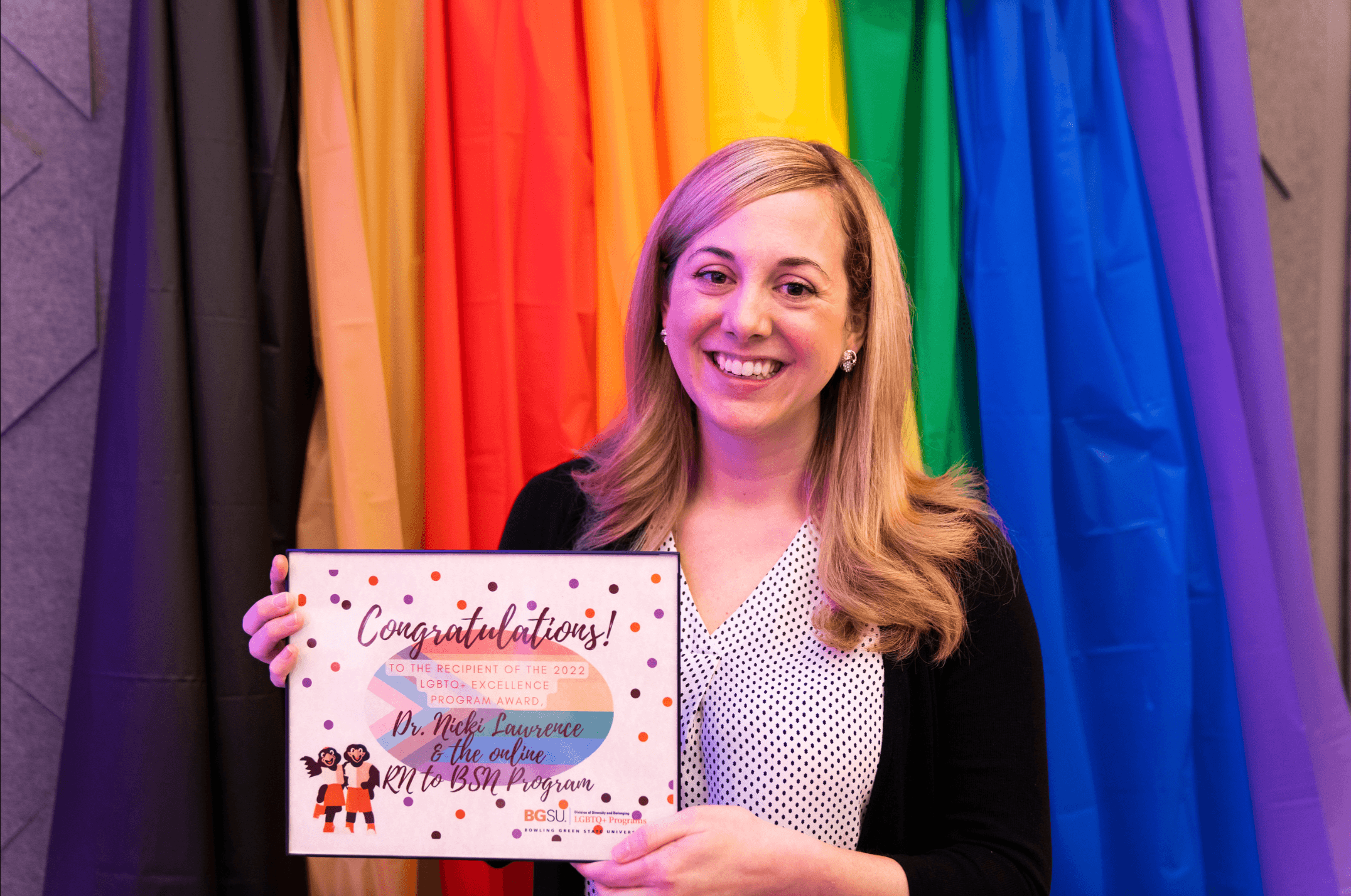
Culturally competent care is key focus of BGSU RN to BSN program
Program incorporates use of preferred pronouns into curriculum for care of LGBTQ+ patients
By Nick Piotrowicz
In health care settings, small details can make a huge difference in how a patient feels about their visit.
Cultural competence has been a key focus of the Bowling Green State University RN to BSN program, one example of which is the addition of using preferred pronouns in the nursing curriculum. Dr. Nicki Lawrence, an assistant teaching professor in the BGSU School of Nursing, said the minor addition can mean everything to LGBTQ+ patients who are unsure of how they will be received in health care settings.
"What is often most important to the patient is not the fancy medical equipment or the complex procedures – what is most important to them is how they are treated, whether they can sense that it's non-biased, inclusive care and that they are respected. And for the LGBTQ+ community, this may be in the form of the health care worker asking and acknowledging their pronouns," Lawrence said.
"That's why we're doing what we're doing, because patients and clients may not remember some of those other technical details – but they’re going to remember how we truly made them feel. Did we make them feel welcomed and like they belonged at that health care organization or community setting?"
Research consistently has demonstrated that bedside manner and patient satisfaction are directly correlated.
A 2021 study of 38,000 reviews of online dermatologists published in JID Innovations found that the most influential factor in both positive and negative comments was not physician experience, wait times, or even cost – but rather patient experience and the physician's bedside manner (Queen, et. al, 2021). Similarly, research into blepharoplasty patients published in Aesthetic Surgery Journal found that "physician bedside manner and aesthetic result" were the biggest reason for leaving a positive review online (Tseng, et. al, 2021).
Though the simple interactions between a health care worker and a patient might be the easiest part of a visit to overlook, Lawrence said the touch with which those conversations are conducted is massively important in the grand scheme of health care.
Lawrence said she demonstrates cultural competence in the classroom and in volunteering engagements by establishing a rapport from the very beginning through introductions.
"I'm all about comfort, so comfort for both the health care worker and obviously the client," she said. “A simple way to welcome the client to share their pronouns is through the health care worker role modeling this in their introduction. For example, ‘Hi, my name is Nicki, and I will be your nurse today. My pronouns are she and her. How can I best address you?’ So just something simple like that, I'm going to role model to the client that I believe pronouns are important and it is a safe place for them to share their pronouns as well.”
Though it might feel differently at first, Lawrence said getting accustomed to sharing pronouns is a gradual, step-by-step process that is easy to incorporate into the role of a health care worker. What's important, she said, is continual growth toward working with and caring for all types of diverse individuals, including the LGBTQ+ community.
While it's critical for nurses to be competent in all clinical skills, such as IV pumps or health care computer systems, Lawrence said communication and interaction skills are just as essential.
“And in reality, no matter what type of culture we are interacting with, it’s our soft skills that are often what's most meaningful and therapeutic to the client.” she said. "The RN to BSN program takes pride in helping prepare graduates to provide safe and quality person-centered care to diverse populations."
Related Stories
Media Contact | Michael Bratton | mbratto@bgsu.edu | 419-372-6349
Updated: 04/14/2022 10:59AM




